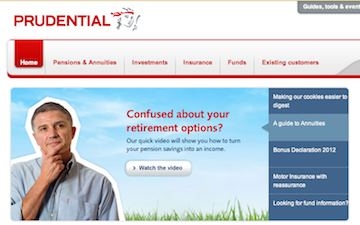Prudential says that one in six high earners can expect to see their child benefit payments reduced under new rules and an estimated 36,000 taxpayers could increase their pension savings to avoid the new tax. A quarter (25 per cent) of higher rate taxpayers expecting to have their child benefit payments reduced due to new tax rules which come into force next year, may boost their pension contributions to avoid the tax. That's according to new independent research commissioned by Prudential.
From 7 January 2013, if one parent in a household earns more than £50,000 he or she will have to pay the new child benefit tax, regardless of which parent is claiming the child benefit and irrespective of the income earned by the second parent.
Prudential's survey of workers earning between £42,275 and £149,999 found that 16 per cent - equivalent to around 144,000 workers across the UK - expect their child benefit to be hit as a result of the new tax charge. However, a quarter of these people say they may increase their monthly pension contributions in order to avoid the new child benefit tax charge.
In the UK at present, families receive a child benefit payment of £1,055.60 a year for the eldest child and a further £696.80 a year for each additional child. Therefore a high-earning family with three children under 16 could find themselves up to £2,449.20 a year worse off under the new rules.
Matthew Stephens, Prudential's tax expert, said: "The new child benefit tax charge will be a real blow for many families next year, particularly in households where salaries are unevenly distributed and one parent is the main or sole breadwinner. There is, however, a strong case for a parent whose income is between £50,000 and £60,000 to make additional pension savings to avoid the new tax, and at the same time boost their retirement income.
"Saving for retirement is absolutely vital, yet a quarter of higher rate taxpayers say they don't contribute anything at all to a pension scheme, which is very worrying. Often this is because people believe they can't afford to save, but as is the case for many families that will see their child benefit payments taxed from next year, not saving for retirement could be a far more costly option."

